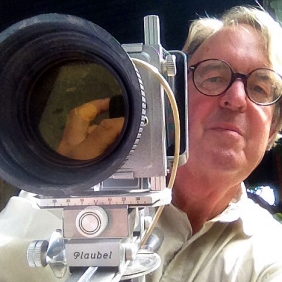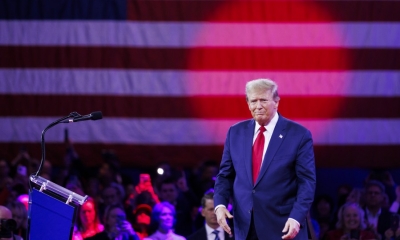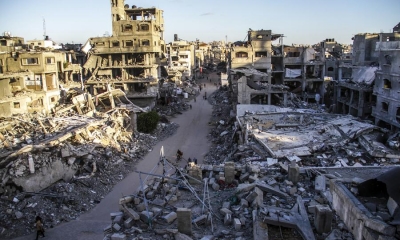A Greek Tragedy in Ukraine
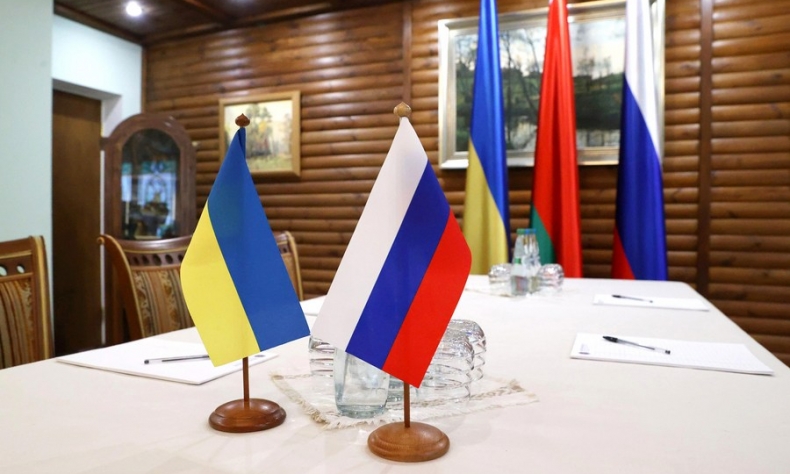
To promote Europe-wide peace and development new security architecture is essential. Diplomacy to that end must follow the present crisis in Ukraine.
Events unfolding in Ukraine today remind us of the inexorable conclusion of an ancient Greek tragedy. After the Russian intervention, Ukraine will never be the same and Europe will never be the same. Indeed, the world will never be the same.
During the performance of an ancient Greek tragedy, there was a chorus of voices on stage that spoke directly to the audience. The chorus intoned warnings, messages, and moral sentiments. The chorus element in Greek theater was prevalent in the 5th century BCE and thus not unfamiliar to the Western world.
A tragic end for Ukraine has been predicted by an array of Western diplomats and academic experts over the past several decades.
US policymakers ignored this modern-day chorus of American diplomats and academic experts who warned not to provoke Russia by exacerbating the situation in Ukraine. Provocation could result in Russian military intervention, they said.
Since the end of the Warsaw Pact military alliance in July 1991 and the dissolution of the Soviet Union later that year, the situation in Ukraine has been a key issue in European security. This is due to its geographic location, complex historical relationship to Russia, and role in Western Cold War geopolitics.
Who gave warnings?
Foremost was the warning of US Ambassador George Kennan in 1998. Kennan was the architect of the US post World War II containment policy and was the leading US expert on Russia. He commented on the consequences of NATO eastern expansion which he opposed. “I think it is the beginning of the new cold war,” he said. “I think the Russians will gradually react quite adversely and it will affect their policies. I think it is a tragic mistake. There was no reason for this whatsoever.”
American international relations scholars such as Professor John Mearsheimer pointed out the consequences of provoking Russia. In 2014, Mearsheimer wrote, “the United States and its European allies share most of the responsibility for this crisis.”
In a recent interview, Mearsheimer was more specific. “I think all the trouble in this case really started in April 2008, at the NATO Summit in Bucharest, where afterward NATO issued a statement that said Ukraine and Georgia would become part of NATO,” he said. “The Russians made it unequivocally clear at the time that they viewed this as an existential threat, and they drew a line in the sand. Nevertheless, what has happened with the passage of time is that we have moved forward to include Ukraine in the West to make Ukraine a Western bulwark on Russia’s border.”

Back in 2014, another US political scientist when commenting for a Chinese publication had similar words about the “Euromaidan” coup d’etat sponsored by the US and western allies.
“Will the West’s regime change policy in Ukraine lead to a stable democracy or to war?” he said. “Although the dust has yet to settle, some observers say the country could become a failed state and that military intervention cannot be ruled out. Washington and the European Union have objectives which are geopolitical and aimed squarely against Russia in Cold War fashion. US strategic objectives are not new. The Clinton Administration made no secret about its policy to recruit Ukraine into NATO. Then secretary of state Madeleine Albright was obsessive on the matter. Inspiration for US policies involving Ukraine’s “Orange Revolution” and other color revolutions relies in part on the strategic thought of Zbigniew Brzezinski, a mentor of Madeleine Albright.”
The political scientist warned of Russian intervention and the fascist and anti-Semitic roots of the post coup regime.
“The present regime did not come to power through democratic means,” he said. The regime change came from a putsch backed by militant extremist movements such as Right Sector and neo-fascist parties such as Svoboda. The world witnessed the “Euromaidan” putsch on the internet and on television with glimpses of swastika-like symbols and anti-Semitic rhetoric. Whether a new and democratic constitutional order can be established is an open question. The country may descend into chaos. Russia may be forced to intervene.”
Those words were part of my opinions published in Global Times years ago.
Ukraine regime change and consequences
The influential Polish-born Brzezinski was well known for his visceral anti-Russian geopolitical views. Color revolutions in Ukraine and Georgia held special geopolitical significance for Brzezinski and his protégé Madeleine Albright for their strategic implications on the Eurasian landmass to contain Russia.
Back in the day, the denials of President Barack Obama and national security advisor Susan Rice that US policy in Ukraine was not geopolitical rang false. Rice herself is a protégé of Madeleine Albright espousing humanitarian interventionism and regime change policies which find neoconservative allies.
As in the Obama administration, Susan Rice is in the White House today along with Victoria Nuland who was a prime advocate of the Euromaidan coup in Ukraine. It is ironic that Nuland’s family has roots in Ukraine.
Western media is oriented in support of regime change policies and thus it is not surprising that analysis of the Ukraine situation has been less than objective for many years.
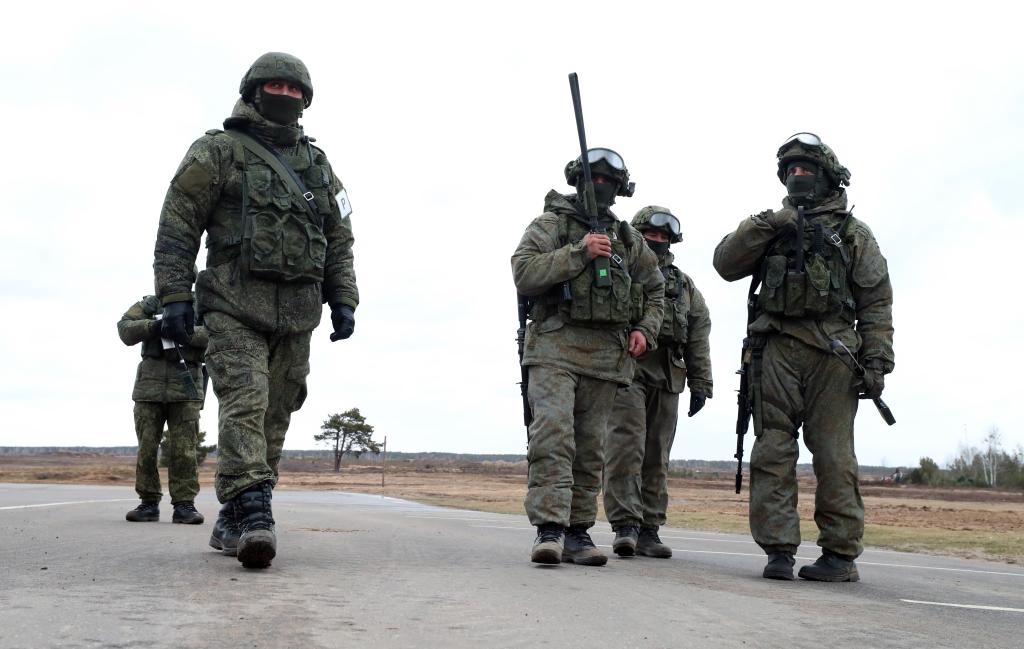
Failure of the Minsk Process
The Minsk Process was supposed to be a diplomatic way to resolve the Ukraine situation. It was supported in 2015 by UN Resolution 2202. The package of proposals for resolving issues in Ukraine included a call for a new constitutional dispensation that would allow for autonomy in the eastern Russian speaking area. The regime in Kiev has rejected the Minsk process for eight years. It ended with the Russian intervention.
“It is no secret to anyone in Europe that the disintegrating situation of violence and economic collapse in Ukraine threatens European peace and stability,” this writer said at the time. “The situation presently is on a hair trigger and key European leaders do not want the US to create more problems for European security through unnecessary confrontation with Russia and through military support of the fascist regime in Ukraine. Europe’s challenge is to help effectively manage the situation in spite of Washington and its partner the UK.”
Special status for minority cultural areas is not something new in the world. For example, there is French-speaking Quebec in Canada and German-speaking Alto Adige in Italy. In fact, the Italian foreign minister himself at the time made a constructive suggestion that Italy’s example could be applied to Ukraine.
Diplomacy is inevitable
At the conclusion of hostilities in Ukraine, diplomacy is inevitable. But it will be complicated and complex because Europe will not be the same. Effective diplomacy based on a model such as the Europe wide Congress of Vienna of 1815 comes to mind. It took several years to work out all the details. Similarly, a recent model is the Helsinki Accords of 1975 designed to improve East-West relations.
To promote Europe-wide peace and development new security architecture is essential. Diplomacy to that end must follow the present crisis in Ukraine.
The article reflects the author’s opinions, and not necessarily the views of China Focus.
 Facebook
Facebook
 Twitter
Twitter
 Linkedin
Linkedin
 Google +
Google +



